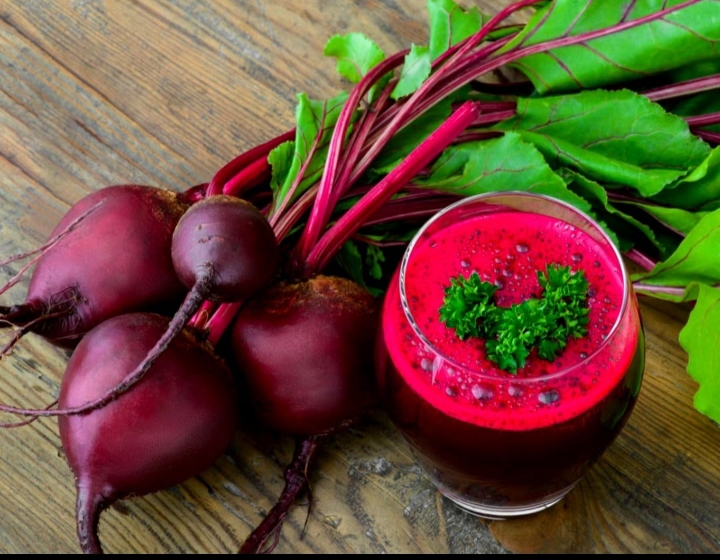Health and Wellness
Beetroots offer numerous health benefits due to their rich nutrient profile, including improving cardiovascular health by lowering blood pressure and enhancing athletic performance by increasing oxygen delivery to muscles. They also support brain function, digestive health, and are packed with antioxidants that have anti-inflammatory properties. Additionally, beets can benefit skin health, aid in the management of anemia due to their iron content, and provide important nutrients like folate, which is crucial for cell growth.
Cardiovascular and circulatory health
Lowers blood pressure:
The high concentration of nitrates in beets is converted to nitric oxide, which helps relax and dilate blood vessels, leading to lower blood pressure.
Improves athletic performance:
Beetroot juice can improve stamina and boost oxygen use during exercise by making mitochondria more efficient.
Supports heart health:
Beets contain nutrients like folate and antioxidants that support healthy heart function.
Brain function and cognitive health
Boosts cognitive function: Nitrates in beets increase blood flow to the brain, which can improve mental clarity, focus, and memory.
Protects against age-related decline : Consuming beets may help reduce the risk of age-related cognitive decline.
Digestive health
Promotes regularity:
The fiber in beets adds bulk to stools, which can help prevent constipation and support overall digestive health.
Supports gut bacteria:
The fiber in beets feeds beneficial gut bacteria, contributing to a healthier digestive system.
May help with cancer prevention:
Some preliminary research suggests that betalains may help inhibit tumor growth.
Supports liver health:
Betaine in beets may help reduce fatty deposits in the liver and support its natural detoxification process.
Improves skin health:
Beets are rich in antioxidants and can help improve blood flow to the skin, leading to a healthy glow.
Aids in managing anemia:
The iron content in beets helps in the production of red blood cells and hemoglobin.












Leave a Reply